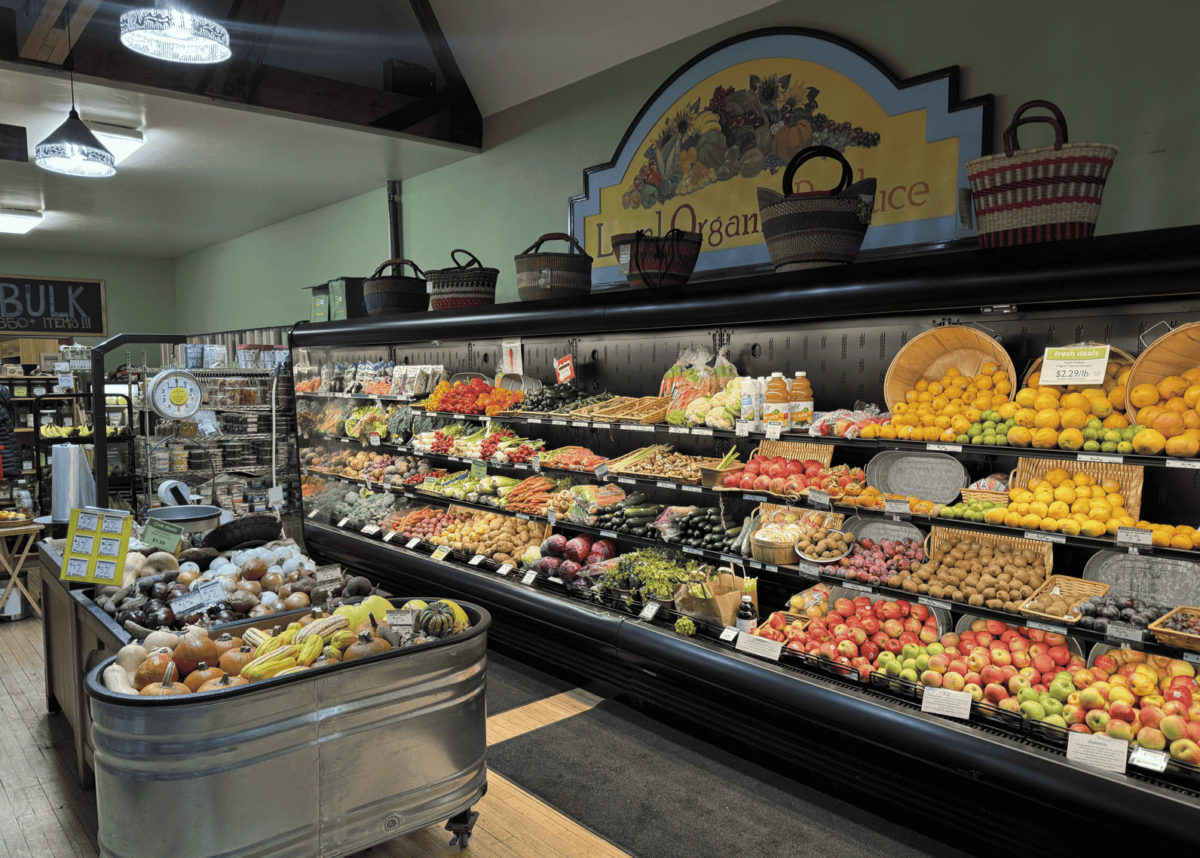Event Details:
When: Saturday, December 7th 2024 | 9-10am, doors open at 8:50am
Where: Dragonfly Cafe | 461 Main St. Quincy, CA 95971
RSVP Deadline: Monday, November 25th 2024
One of the most important Co-op principles we follow is Concern for Community. We strive to support all types of community members and shoppers with an “All Are Welcome” mentality. Lately, we’ve been questioning whether our current co-op model is truly a welcoming place for ALL, or just the select few that can afford it.
For many years, our purchasing policy has remained fairly strict, following the below criteria:
- Locally-owned, made and/or operated businesses within the Feather River Watershed Area
- Organic
- Non-GMO
While this model worked for many years prior to the explosion of natural and organic food availability, current trends suggest it doesn’t serve us as it used to. Furthermore, it discriminates against a large portion of our county’s population.
Much of our community is low to moderate-income. We understand that it’s getting increasingly difficult for families to afford nutritious foods to feed their families; this fact is evident when analyzing how shoppers are paying for their groceries.
Shoppers using their SNAP/EBT cards to purchase groceries at our co-op spent $206,892 in 2023. That is a 28.3% increase from 2022 in the amount of money users of SNAP/EBT spent at our stores. This trend demonstrates the vital need to participate in SNAP/EBT programs so all customers can shop at the co-op.
We recently have been asked by a number of customers if we accept WIC (Women, Infants and Children) benefits. Currently, we do not accept WIC benefits, and this prohibits a large demographic of our community from being able to shop with us.
According to the California Department of Public Health, roughly 60% of all children born in the state of California are eligible for WIC. This program serves approximately one million users each month. The program gives monetary assistance to applicants whose income falls below the federal poverty level, so it could open the door for these parents to shop at our co-op.
If our co-op were to accept WIC, we would need to adhere to the federal requirements, such as carrying specific conventional products (non-organic milk, infant formula, etc.). Additionally, there are brand-specific requirements we would need to follow.
Ultimately, if we choose to be a WIC-authorized retailer, our purchasing policy must change. We would be required to carry a hybrid mix of conventional and organic/non-GMO products. We will always carry organic and non-GMO options, but we may also need to carry conventional alternatives for families who rely on the WIC program.
We don’t view changing our purchasing policy as a negative. Instead, we see it as an opportunity to better serve our community’s needs. If we are truly welcoming to all, we must offer support to the parts of our community that need it most.
We are aware that you can buy almost every product we carry at other stores, including chain stores such as Safeway. This proves that while our purchasing guidelines used to differentiate us, we are much less relevant than we used to be. It is extremely difficult to thrive when our competitors offer the same products with more benefits – i.e. WIC.
Back in 1978 when the co-op was formed, its purpose was not to have just organic foods, but to have access to food, primarily bulk foods. We know that as member-owners you care about the products we carry. We hope that you will also consider families that use food assistance programs.
We are hosting Breakfast With The Board on December 7th to discuss this topic at length. We hope that you join us to share your thoughts about this potential expansion for your co-op. This is your opportunity to engage with your elected Board of Directors and ensure your voice is heard.

